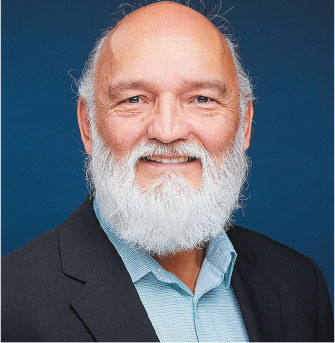Positive role model plays essential role in prison ministry

Larry Wilson is chaplain at stony
Larry Wilson is chaplain at Stony Mountain Institution, a federal prison in Manitoba. PHOTO: ONE TREE STUDIO
"JESUS IS LOCKED up in prison with us." Those words by one of the inmates at Stony Mountain Institution have remained with Larry Wilson, an on-site chaplain at the Manitoba federal prison. He had asked the inmates what prison would be like without chaplains. "The immediate word was ‘dark,’" he says. "Guys are coming to the chapel because they find light, they find peace, they find quiet, they find hope."
Wilson’s appointment as a chaplain at Stony Mountain is significant. About 65 per cent of the prison’s approximately 850 inmates are Indigenous. Wilson is from Peguis First Nation (north of Winnipeg), meaning he shares a deep connection with over half the inmates. Despite the fact Indigenous people are over-represented in Canadian institutions, Wilson says there are few, if any, Indigenous chaplains at other institutions across Canada. "Those guys need to see First Nations Christians, chaplains and leaders. They need to see First Nations who follow Christ, so they can believe that they can too."
First Nations people have deeply relational mindsets which shape how they make decisions and interact as a society, says Wilson. He recalls being filled with joy as he read the job description for the role, and decided it was worth leaving his semiretirement for.
As part of his previous position as regional representative for Prison Fellowship Canada, Wilson had already been volunteering regularly at Stony Mountain leading a Bible study called Malachi Dads. As a chaplain Wilson continues to teach that study focused on offering the inmates a biblical worldview.
On a day-to-day basis, Wilson runs recovery programs, offers discipleship, helps host Sunday evening services and provides support to the prison staff. He meets with inmates one on one, up to about 175 men monthly.
Prison provides an opening to know Christ that some inmates might never have seriously considered outside those walls, says Wilson.